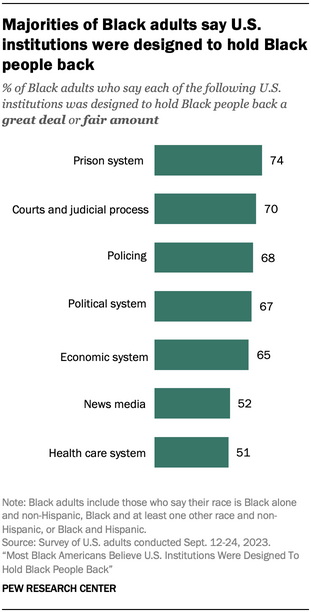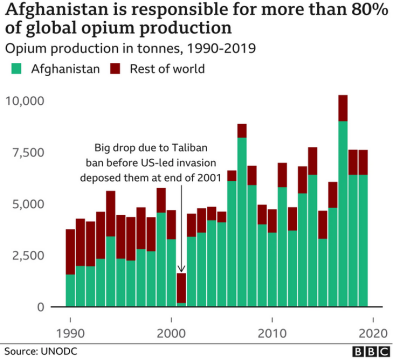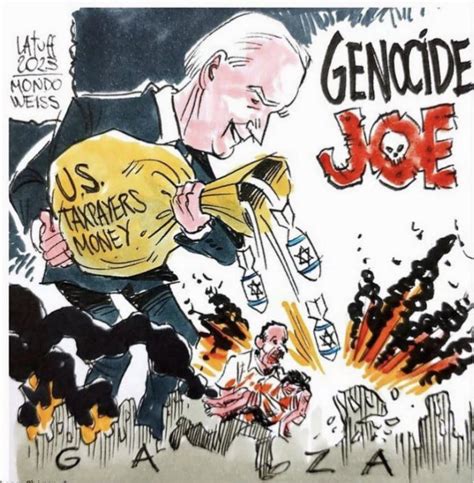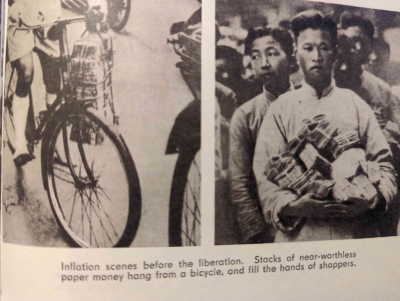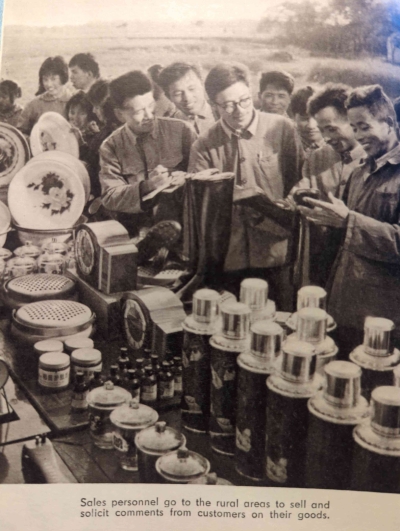
Deportations Target Those Protesting Genocide and Fleeing Imperialist Violence
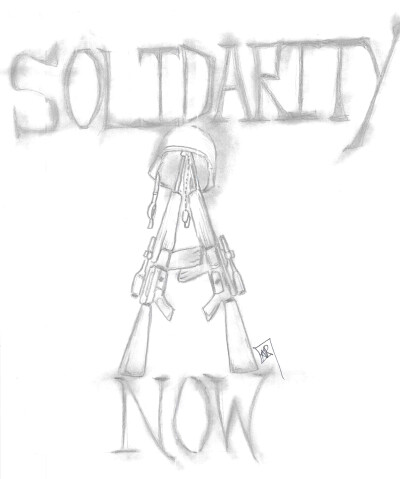
Hyping up the threat of dangerous gangs of “super-predators.” Using confidential informants, tattoos, and appearance to label people “gang members.” Using that gang affiliation to imprison and torture people. These draconian methods are familiar to readers of ULK, and to those who’ve spent time in U.$. prisons in general. The Trump regime has made this headline news for the whole country.
In recent weeks, hundreds of Venezuelans have been deported from the United $tates to a supermax prison in El Salvador. The Trump regime justified this with the 1798 Alien Enemies Act, which allows for the deportation of non-citizens during wartime, and was last used during WWII to deport Germans and Italians and roundup Japanese in internment camps, seizing their assets for Euro-Amerikans. Trump claimed these people were part of a gang conducting “irregular warfare” in the United $tates, but there seems to be no evidence that Tren de Aragua is even a widely functioning organization here. In February, the U.$. State Department designated Tren de Aragua, Mara Salvatrucha (MS-13), and a list of Mexican drug cartels as “foreign terrorist organizations.”
A federal court has ordered a halt to the deportations, but the Department of Justice is defying the order. A legal battle continues, while the executive branch continues to defy the courts.
Venezuela has been a consistent target of U.$. imperialism since the rise of Hugo Chavez to power in 1999.(1) As a result almost 600,000 Venezuelans have been accepted into the United $tates with Temporary Protected Status (TPS). Trump attempted to cancel TPS for Venezuelans, but a federal court has deemed the move illegal. Without TPS, many from Venezuela, Haiti, Ukraine, Sudan, Afghanistan and elsewhere could no longer legally work in the United $tates and could be legally deported.
Kilmar Armando Abrego Garcia is getting special attention as the Trump administration admitted eir deportation was a mistake, and that they can’t get em back from Salvadorean custody. This is despite a court order that prevented em from being sent back to El Salvador, where ey had fled gang violence as a youth. Abrego Garcia has no criminal charges, for what that’s worth, but was labelled a member of MS-13 by a pig citing a “confidential informant” during a round up of day laborers some years ago. As a result, Abrego Garcia has been disappeared from eir family and sent to a torture unit in the very country ey fled for safety reasons.(2)
The ACLU obtained a copy of the “Alien Enemy Validation Guide” being used to deport people.(3) Once establishing someone is over 14 years old, of Venezuelan origin and without U.$. citizenship, a point system is used to “validate” gang members. A “TdA” tattoo gets you 4 points while 8 points are required to qualify as validated. The Homeland Security guide lists photos of tattoos like crowns and stars that are “TdA”. In addition, wearing Chicago Bulls and Michael Jordan athletic wear are listed. When was the last time you saw someone with Air Jordans on and a star tattoo?
Student Activists Targeted
Educational institutions from Columbia University in New York to the University of California system are enforcing the fascist repression on their campuses, from expelling students during Biden’s Presidency, to disappearing them off the streets and from their homes under the Trump regime. Tufts University student Rümeysa Öztürk is being detained for writing an article criticizing the U.$.-I$rael genocide in Palestine. Mahmoud Khalil, who was a respected negotiator between Columbia University and the pro-Palestine student encampment last year, told eir story in a recent statement from 18 March 2025:
“My name is Mahmoud Khalil and I am a political prisoner. I am writing to you from a detention facility in Louisiana… On March 8, I was taken by DHS agents who refused to provide a warrant, and accosted my wife and me as we returned from dinner. …
“My arrest was a direct consequence of exercising my right to free speech as I advocated for a free Palestine and an end to the genocide in Gaza, which resumed in full force Monday night. With January’s ceasefire now broken, parents in Gaza are once again cradling too-small shrouds, and families are forced to weigh starvation and displacement against bombs. It is our moral imperative to persist in the struggle for their complete freedom.”
“… Columbia [University] targeted me for my activism, creating a new authoritarian disciplinary office to bypass due process and silence students criticizing Israel. Columbia surrendered to federal pressure by disclosing student records to Congress and yielding to the Trump administration’s latest threats. My arrest, the expulsion or suspension of at least 22 Columbia students – some stripped of their B.A. degrees just weeks before graduation – and the expulsion of SWC President Grant Miner on the eve of contract negotiations, are clear examples.
“If anything, my detention is a testament to the strength of the student movement in shifting public opinion toward Palestinian liberation. …”(4)
Other targeted students have gone into hiding. At the same time, students across the country are coming together to stand with and defend those who may be targeted next. We commend the solidarity being shown. Schools and prisons are somewhat unique in our society due to the collective identities of their populations and their abilities to organize. With the recent announcements from the Trump regime that they will be deporting U.$. citizens with criminal records to the Terrorism Confinement Center in El Salvador, prisoners need to be prepared to stand together as students are learning to do. While there are many recent examples to the contrary, there is a long history of U.$. prisoners standing up for one another due to the group consciousness that comes with facing a common oppressor every day.
Fascism Coming Home
The United $tates has been using long-term solitary confinement for decades on a scale not seen elsewhere in humyn history. Physicians for Human Rights released a report in 2024 exposing the use of solitary confinement in ICE detention centers contrary to government directives to limit its use to absolute necessity. They documented at least 14,000 cases of people being put in solitary confinement by ICE from 2018 to 2023. Durations in solitary averaged 27 days, with 42 cases lasting over a year. At the time, in 2024, ICE held over 35,000 people, making it the world’s largest immigration detention system.(5)
Conditions are likely worse for those sent to El Salvador, where President Bukele has stated that the only way gang members will leave the Terrorism Confinement Center (CECOT) ey built in 2023 is in a coffin. With a capacity of over 40,000, there are 65 to 70 prisoners held per cell. “CECOT prisoners do not receive visits and are never allowed outdoors. The prison does not offer workshops or educational programs to prepare them to return to society after their sentences.”(6) Bukele has been promoting images of shaved gang members, dressed all in white, being warehoused and man-handled by masked prison guards online since the prison opened. This propaganda campaign has appealed to the pro-fascist elements of Amerika. And with that support, Trump is incorporating this prison into the Amerikan international prison system and sending hundreds of people there from the United $tates. This is a shift closer to home from the network of dark sites, and infamous prisons like Abu Ghraib and Guantanamo Bay, that were used to torture and hold without trial oppressed people across the Muslim world.
Most press sources are reporting the Amerikans paid $6 million for 238 prisoners to be held in CECOT, which some point out is much less than what it would cost to imprison them in the United $tates. But it is an amount that will greatly help El Salvador to fund their monstrosity of a prison. It doesn’t make sense that the imperialists are paying to have these prisoners held, but then claim they cannot return people like Abrego Garcia back to their families.
In the 1980s, U.$.-sponsored death squads, trained at the School of the Americas in Georgia, killed and displaced countless people across Central America that were fighting for socialism and to remove imperialism from their countries.(7) Many children of this war in El Salvador were displaced to Los Angeles where they joined Barrio 18 or formed the new Mara Salvatrucha (MS-13), were persecuted by the state, and then exported back to El Salvador. We’ve reported on efforts at peace between these groups in 2013, which coincided with investment by USAID and the building of new U.$.-inspired prisons in El Salvador.(8) But conditions for the people of El Salvador did not improve, and they voted for President Nayib Bukele who both utilized the lumpen organizations in eir political organizing and later turned on them as a scapegoat for the ills of the country in a fascist repression campaign.(9)
The struggle against fascism in this country relies on the coming together of people to defend migrant populations and students currently under attack. As fascism rises, we see the campaigns of groups like the ACLU coming closer to those of MIM(Prisons). As important legal battles are taking place, we also see the spreading recognition that we can’t rely on the courts to save us. We must have a plan B. We must build our plan B.
Notes:
1. Soso of MIM(Prisons), January 2019,
Imperialists Push Coup in Venezuela to Secure Oil for Amerikans, Under
Lock & Key 67.
2. Democracy Now!, 2 April 2025.
3.
https://www.wlrn.org/immigration/2025-03-31/ice-tren-de-aragua-venezuela-deportation-el-salvador
4.
https://www.aclu.org/news/free-speech/a-letter-from-palestinian-activist-mahmoud-khalil
5. Physicians
for Human Rights, 6 February 2024,
https://www.wlrn.org/immigration/2025-03-31/ice-tren-de-aragua-venezuela-deportation-el-salvador.
6. Aleman
& Cano, 17 March 2025, “What to know about El Salvador’s mega-prison
after Trump sent hundreds of immigrants there”, Los Angeles Times.
7. MIM(Prisons), June 2009, FBI Arrests Peacemaker, Under Lock
& Key 9.
8. MIM(Prisons), March 2013, One-Year Anniversary of
Peace Treaty in El Salvador, Under Lock & Key 31.
9. Badgreen of
MIM(Prisons), September 2023, 8,000 Military and Police Deployed in
Cabanas Province, El Salvador, Under Lock & Key
83.
Related Articles:This article referenced in:








